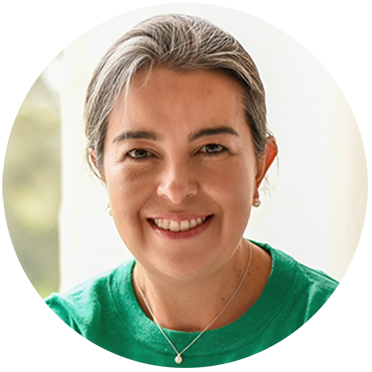Key Conversations: airlines and companies discuss the sustainable future of aviation at ALTA Fuel & Sustainability Conference
The second edition of the Conference brought together representatives from 24 airlines operating in Latin America and the Caribbean, suppliers and authorities to address critical issues related to the production, distribution and supply of fuel
March 15, 2024

Bogotá, march 15, 2024 - The second edition of the ALTA Fuel & Sustainability Conference brought together representatives from 24 airlines operating in Latin America and the Caribbean, suppliers and authorities to address critical issues related to the production, distribution and supply of fuel, keys to achieving a more sustainable operation and the environmental, social and corporate governance actions that will contribute to achieving sustainable and sustainable aviation in the region.
"Thanks to our business model, in 2023 we will generate 26% less emissions per passenger carried vs. 2019 and 20% less absolute emissions, while reaching close to 32 million passengers carried in 2023, the highest number in avianca's history," said Felipe Gómez, Avianca's Director of Government Relations and Sustainability during his intervention in the panel that dealt with operational and ESG actions that improve the airlines' sustainability strategy.
"Sustainability is a commitment of the company and we do it in a responsible and realistic way so that aviation does not become a luxury, as it was some years ago. We must think about the Latin American user and the great progress we have made so that we do not go backwards. Our bet is on access to air service in our region. In 2023, 16% of avianca's passengers were people who flew with us for the first time. Spaces like this are key to connect with government entities from various countries and understand that in Latin America we have particular challenges and realities that we must face together," said Gómez.
"In AZUL we have more than 40 initiatives to generate efficiencies and we work with all areas of the company, which has made us the first airline with goals approved by SBTi. This integrated approach has allowed us to reduce fuel consumption, improve operations and become more efficient. In Latin America we are responsible for less than 0.05% of the planet's emissions, but the commitment to be more efficient is still very strong", said Diogo Youssef, Executive Manager of Efficiency at Azul Linhas Aéreas, who also participated in the panel moderated by Juliana Téllez, from Colegio de Abogados de Derecho Aeronáutico (CADA).
At Air France KLM they are using together with pilots Artificial Intelligence (AI) to review all operational measures, analyze each flight, trajectory, speed and other factors that allow them to understand how fuel consumption is and how efficiencies can be generated that contribute to sustainability. "We want to continue promoting the production of SAF not only globally, but in Latin America because we see the potential in countries like Colombia, the socio-economic impact it would have and we are ready to collaborate to complete the necessary legal framework," said Maristella Rodriguez, Sales Manager Colombia at Air France-KLM.
Marco Larson, sustainability leader at SKY Airline, highlighted gender inclusion and equality in his speech: "40% of SKY's board of directors are women. We also have the "Woman Dare to Fly" program that encourages the participation of women pilots and today more than 10% of SKY's pilots are women. The commitment to inclusion, education and sustainability are key for the board and the company".
For Stephano Gachet, director of fuel supply and aeronautical fees at LATAM Airlines, the key is to innovate, to try new things. "In addition, it is very important to support sustainable and fair public policies. At LATAM we are working very closely with the corporate affairs team on this and with MIT we are doing a study to determine the best practices to promote SAF in this region."
"At LATAM we have an important commitment in our climate change pillar: to be 50% carbon neutral for our domestic operation by 2030 and 100% carbon neutral by 2050. We will achieve this through fuel efficiencies, SAF, carbon offsetting and fleet renewal," he said with conviction.
This point coincides with the presentation by Felipe Trujillo, product and petrochemical manager of Ecopetrol, who highlighted the key factors for the stable and scalable production of SAF in Colombia. Trujillo emphasized the importance of technical regulation, sustainable feedstocks, technological development, government policies and incentives, the certification process, marketing and airport distribution infrastructure as key enablers for sustainable production of SAF in the country.
Hydrogen as an alternative
In addition to discussions on sustainability and fuel efficiency, the conference also included a panel on updating the use of hydrogen in aviation, which was moderated by Carlos Mancilla of H2 Colombia and featured representatives from Boeing, Airbus and Embraer.
As the aviation industry looks for ways to become more sustainable, hydrogen is emerging as an option to produce clean energy without generating carbon emissions. However, there are technical and logistical challenges that must be addressed to make hydrogen use viable on a large scale in aviation.
"We will need a couple of decades to achieve flying with hydrogen, especially to achieve applications for commercial flight with larger aircraft. We still have challenges in design, operation and maintenance, procurement and certifications," explained Otavio Cavalett, Boeing's director of Public Policy and Sustainability Partnerships for Latin America and the Caribbean.
"We are studying the minimum size of aircraft for hydrogen use. We believe the application will be first in aircraft up to 50 seats. However, it is important before talking about application, to talk about market need," said Cesar Pereira, Embraer's Sustainability and Strategy Advisor.
Meanwhile, Guillaume Gressin, vice president of strategy at Airbus argues that "there is no single solution, there are several pillars to achieve sustainability and we are working in tandem with their opportunities and challenges. At Airbus we have a goal to reduce emissions 63% by 2030 vs. 2015 because we also use kerosene for our operations. We are using the solutions we are developing. This year we are already using 11% SAF and in 2030 we will use 30%. We must focus, as manufacturers, on ensuring that technology is not a constraint for the use of PBS or other technologies. We believe that Latin America will be one of the first regions to have hydrogen because of its production capacity and trunk routes.
(*) A regional vision
In a Latin American context, various entities such as TOPSOE, the Dominican Civil Aviation Institute (IDAC) and the Civil Aviation Technical Council (CETAC) of Costa Rica recognize the imperative of moving towards a more sustainable and also more accessible aviation.
The TOPSOE representative highlighted the impact of the SAF on ticket prices and its subsequent socioeconomic impact in the region, which highlights the need to seek efficient and accessible mechanisms for the population.
On the other hand, IDAC pointed out the potential of using disused sugar cane fields for the production of SAF, which could generate significant economic and environmental incentives.
CETAC, for its part, highlights the importance of regional collaboration and the need to work together to create an enabling environment for investment in more sustainable aviation technologies and practices. These efforts demonstrate the region's shared commitment to a greener and more equitable aviation future.
With enriching discussions, networking opportunities and a renewed commitment, the ALTA Fuel & Sustainability Conference ended with the promise of a new edition in 2025. We are extremely grateful to our sponsors Argus, Terpel, Exolum, Neste, World Fuel Services, AEG Fuels and SITA for making this event possible.
























